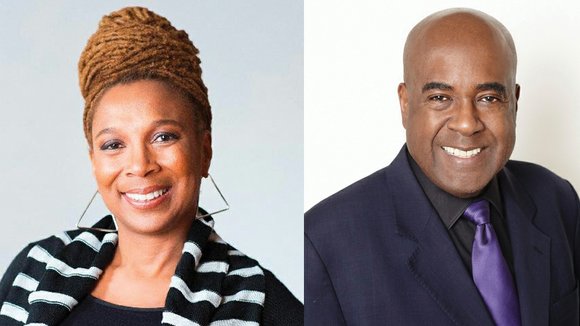Afflicting the comfortable
2/26/2016, 8:06 a.m.
Kimberlé Crenshaw and Luke Harris
In American society, we claim to support freedom of speech as a cornerstone of our democracy. Yet when it comes to certain kinds of information — particularly ideas that threaten the basis for white supremacy — censorship suddenly becomes justifiable. A teaching tool created by the African American Policy Forum recently was subject to this form of censorship in Henrico County.
As part of Black History Month at Glen Allen High School, Ravi Perry, president of the National Association of Ethnic Studies, showed AAPF’s “Unequal Opportunity Race” video at an optional-attendance assembly. In consultation with school officials, Dr. Perry developed a program to facilitate dialogue with students about contemporary racial issues that responded to a recent instance of racism at the school.
The 4-minute video uses an age-old metaphor that represents opportunity in our society as a foot race that is rigged from the start. The video highlights racial obstacles that disadvantage nonwhite runners. Through calling attention to hardships such as slavery, genocide, inferior education, housing discrimination, racial profiling and health disparities, the video displays that it is the conditions on the track rather than the capacity of the runners that impede the advancement of some more than others.
Despite its accurate representation of historical events and ongoing racial inequities, the video has been demeaned as a “white guilt video” by a vocal minority, egged on by national outlets such as Fox News. Far more alarming than this backlash is Henrico School Board Chair Micky Ogburn’s apology. Denouncing the content as “racially divisive,” Ms. Ogburn proclaimed that “school leaders have been instructed not to use the video in our schools.” Reportedly, students or teachers wishing to discuss the merits of the video are no longer permitted to view it on school premises.
In banning this video, the School Board rehearses a response to critiques of racial injustice that is as old as the nation itself. It was once a criminal act punishable by heavy whipping for black people to read and write, squelching our capacity to contest the logic of an inhumane system. Literature that challenged the moral basis for slavery was not only banned, but authors who produced them were punished by law. Throughout American history, vigilantes shut down printing presses and silenced abolitionists. Ida B. Wells was run out of Memphis and her paper was destroyed because she dared to question prevailing justifications for lynching. These acts of terror were justified by those who believed that certain ideas should be quashed by any means necessary.
Many Americans believe that this ugly history of racial suppression is forever locked in the past. Yet the barrage of racist hate messages that have supported the ban belie claims that criticisms of the video reflect colorblind values. To the contrary, the justification for censoring the “Unequal Opportunity Race” video is tied to white racial comfort. According to Ms. Ogburn, the video was banned in response to those who were offended by the suggestion that “white people face fewer challenges than minorities and that the video portrays life being easier for white people.”
The critique now boils down to a demand that a video designed to present the continuing legacy of white supremacy cannot suggest that white people are advantaged by not having to confront the legacy of race-based obstacles.
Research suggests that such disgruntlement is not exclusive to Henrico County. A majority of white people apparently believes that they are now the most likely victims of racial discrimination. The School Board’s capitulation to these sentiments embodies a preference for dialogue in which any assertion of structural advantage is a non-starter.
Ironically, the power exercised by some white parents to dictate the terms of acceptable racial discourse is precisely the kind of racial advantage that cannot be named. Perhaps the only thing worse than exercising racial power is denying that it even exists.
The bottom line is that white discomfort with the “Unequal Opportunity Race” video is spilling over into public policy. To put it plainly, in facilitating demands for racial comfort, the censorship of contested ideas about racial inequality is now taking place in Henrico County. This is a troublesome development in a society such as ours.
Surely there are other ways to foster healthy debate about contemporary forms of racial inequality, but the School Board cannot claim to be open to fostering critical reflection on these matters so long as the video remains banned. Parents and students who value the perspective that the video represents are right to insist that the ban must be rescinded. All those who value informed dialogue — whether they agree with the video or not — should stand with them.
The writers are co-founders of the African American Policy Forum. Ms. Crenshaw is a law professor at UCLA and Columbia Law School. Dr. Harris teaches American politics and constitutional law at Vassar College.







